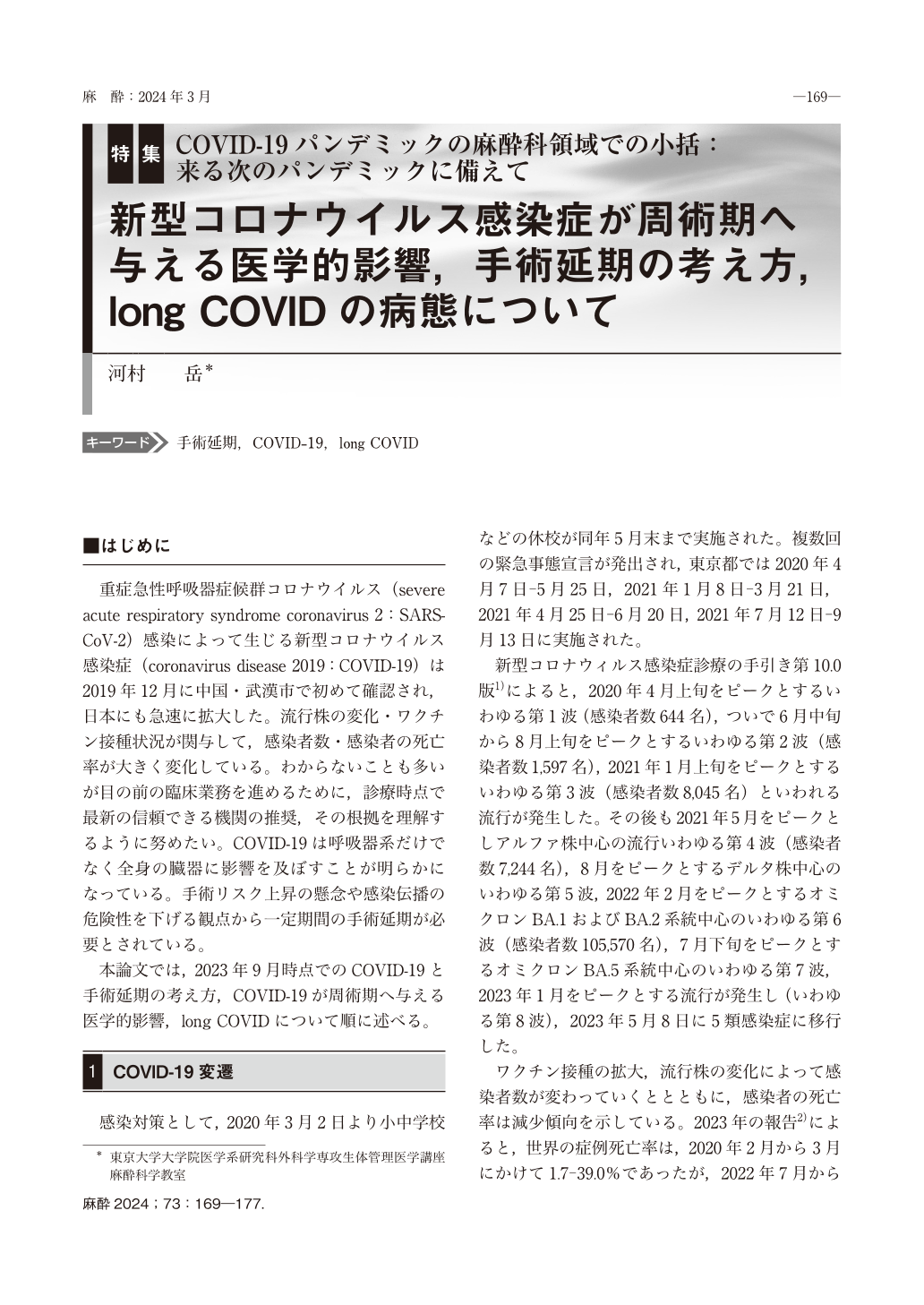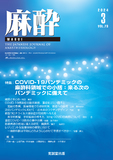Japanese
English
- 有料閲覧
- Abstract 文献概要
- 1ページ目 Look Inside
- 参考文献 Reference
はじめに
重症急性呼吸器症候群コロナウイルス(severe acute respiratory syndrome coronavirus 2:SARS-CoV-2)感染によって生じる新型コロナウイルス感染症(coronavirus disease 2019:COVID-19)は2019年12月に中国・武漢市で初めて確認され,日本にも急速に拡大した。流行株の変化・ワクチン接種状況が関与して,感染者数・感染者の死亡率が大きく変化している。わからないことも多いが目の前の臨床業務を進めるために,診療時点で最新の信頼できる機関の推奨,その根拠を理解するように努めたい。COVID-19は呼吸器系だけでなく全身の臓器に影響を及ぼすことが明らかになっている。手術リスク上昇の懸念や感染伝播の危険性を下げる観点から一定期間の手術延期が必要とされている。
本論文では,2023年9月時点でのCOVID-19と手術延期の考え方,COVID-19が周術期へ与える医学的影響,long COVIDについて順に述べる。
Severe acute respiratory syndrome coronavirus 2(SARS-CoV-2)has been shown to affect not only the respiratory system but all organs of the body. Therefore, it is sometimes necessary to postpone surgery for a certain period. With regard to the postponement of surgery, as of September 2023, the author believes that surgery should be performed only if it is urgently necessary, e.g., in life-threatening situations in which surgical treatment is the only life-saving option. Elective surgery should not be performed within two weeks of a diagnosis of SARS-Cov-2 infection. Additionally, if surgery is to be performed between 2 and 7 weeks after SARS-Cov-2 infection, a risk assessment of the patient should be carried out. Long-term sequelae, known as “long COVID” have been reported, but at the time of writing, little is known about their causes or mechanisms.

Copyright © 2024 KOKUSEIDO CO., LTD. All Rights Reserved.


